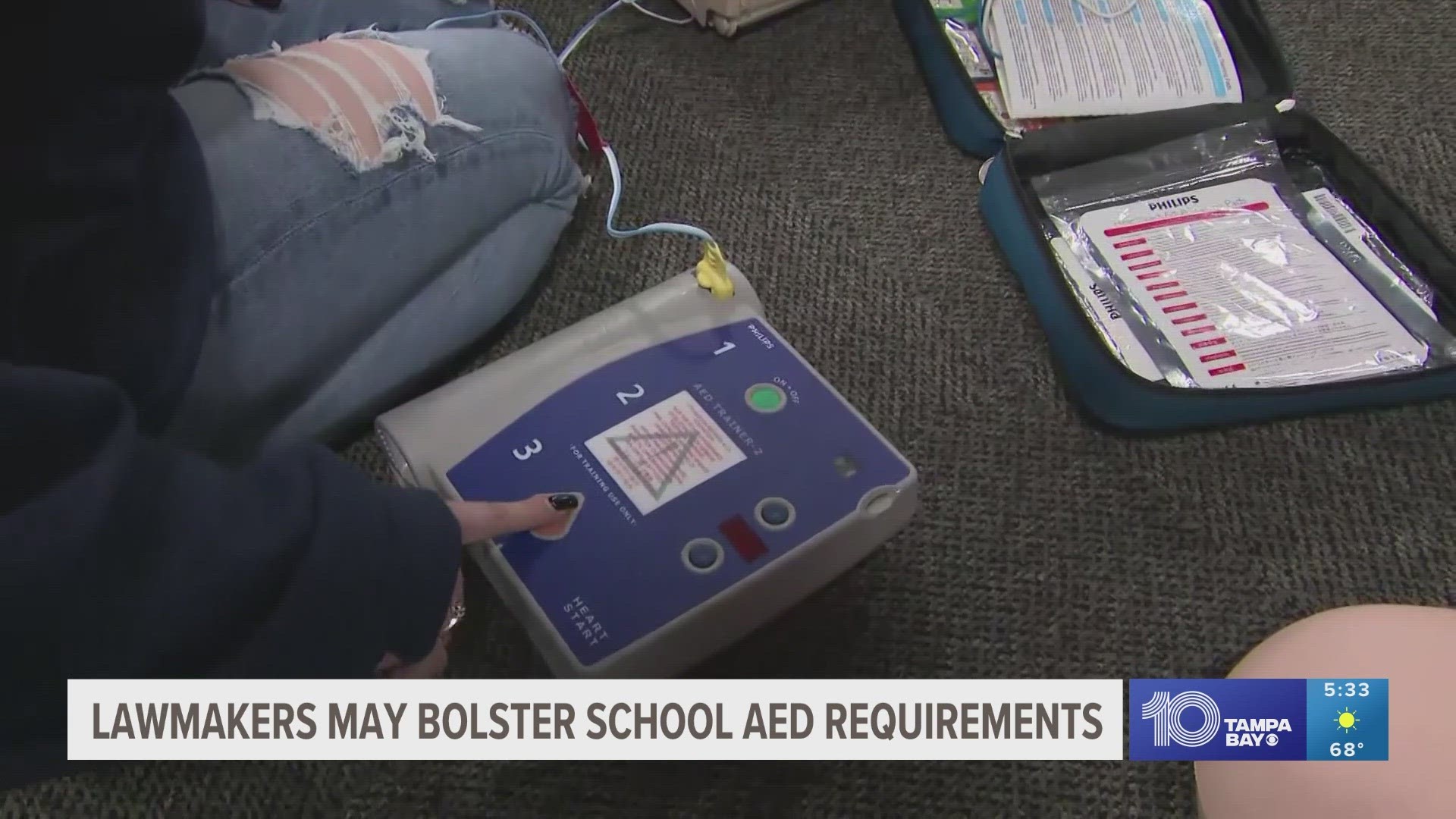TALLAHASSEE, Fla. — Florida state lawmakers are considering a proposal that would expand access to life-saving AEDs in public schools across the state.
Right now, Florida schools with sports programs are required to have AEDs at athletic venues and coaches must be CPR-certified, but lawmakers are looking at bolstering those requirements.
“In our state, sudden cardiac arrest is a leading cause of death for student-athletes. It impacts as many as 23,000 young people annually,” said State Sen. Jay Collins, R-Tampa, who proposed SB 830. “Timely access to CPR and defib can more than double a person's chance of survival,” he added during a recent state Senate committee hearing.
His proposal would require all schools to have at least one AED on school grounds in non-athletic locations and ensure coaches receive continuous training in CPR and in how to use defibrillators. The bill would also require districts to have a “Cardiac Emergency Response Plan” readily available.
“This bill takes a remarkable step forward to make sure that when we're not there with our kids, we can rest assured that the training does happen, the tools are there to provide them that opportunity to have a successful outcome when something does go wrong,” Collins said.
We saw firsthand how early intervention can be lifesaving when earlier this month Ansel Laureano, a 17-year-old student at Tampa’s Leto High School collapsed at track practice. A track coach performed CPR and his assistant principal used an AED before paramedics arrived, likely saving his life. His dramatic rescue was captured on a deputy’s body camera.
The American Heart Association is hoping lawmakers and the governor approve the proposal saying especially for kids, education and early intervention are paramount.
“It's estimated that if we can get quality chest compressions done and an AED on very quickly, their survival odds go up to about 89%, which is amazing,” said Courtney Burt, vice president of community impact with the American Heart Association – Tampa Bay.
Burt says the adoption of cardiac emergency plans is an important piece of the proposal because “if the education isn't there, where [AEDs are] located, or how to use them and incorporate them into cardiac emergency response, then essentially, those tools are not useful.”
Burt adds if the new rules are adopted, “anyone who visits [a] campus will be in a safer environment.”
Bills in both the House and Senate have passed committees and will need to be voted on in the coming weeks. Collins says they’re also working to have funding for school districts to buy AEDs if they don’t currently have them.

